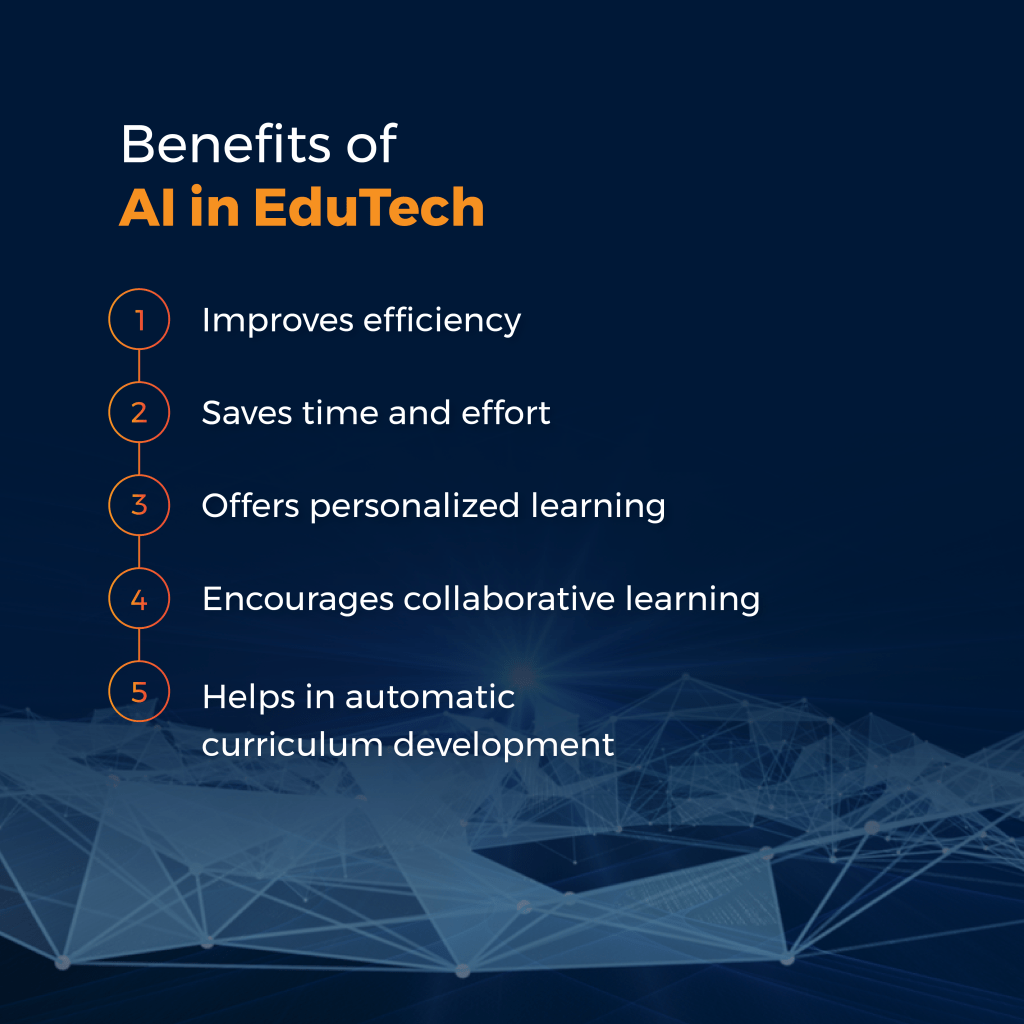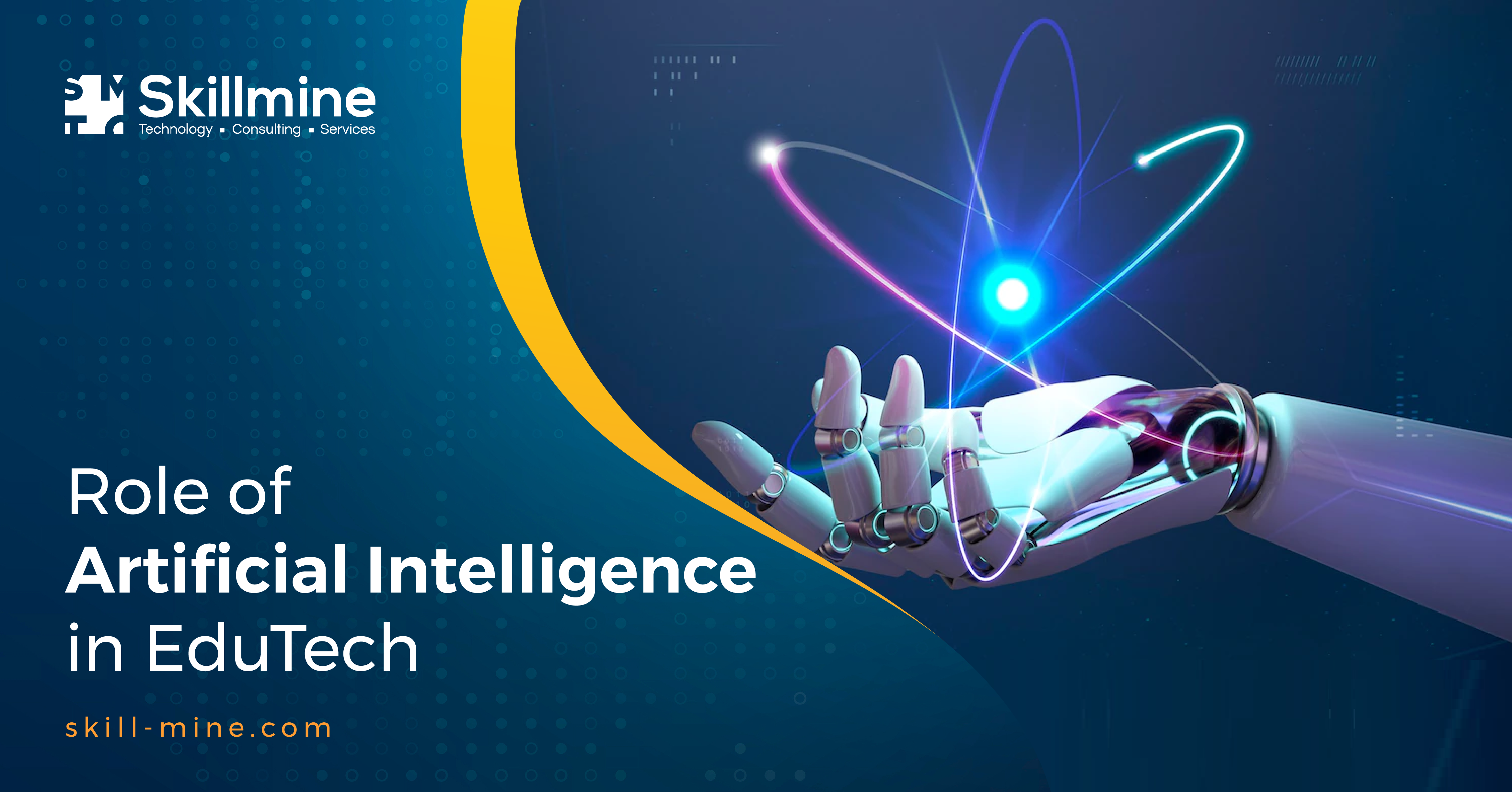The use of digital technologies has revolutionised the field of education all over the world. There have been several changes in how education is accessed, the most significant being the move from traditional classroom learning to studying from anywhere. The seamless connectivity made possible through technology enables instructors to provide high-quality education to students in any part of the world.
Adopting digital technologies has improved the quality of classroom instruction, increased student participation, significantly advanced how students and instructors arrange their sessions and made learning more enjoyable and engaging.

Applications of AI in the EduTech sector
Grading and performance assessment
Artificial Intelligence automates checking tests and grading students. This method uses Data Analytics and cognitive neurology to determine students’ knowledge gaps, offer course content, and automatically mark responses. Through a dashboard, teachers may track the performance of each student and the class as a whole. AI can be used for grading students’ handwritten assignments and assessments.
Adaptive learning
An AI-based learning platform can be created that will assess each student’s talents and capacity for learning and offer them a customised curriculum. Additionally, a clever algorithm can examine how each student engages with the learning materials and compile this information into reports to understand how well each student learns.
Interactive materials
Learning is more effective with access to visual materials. Subject visualisation makes teaching complicated content simple and guarantees that students follow the learning plan. Computer Vision, a branch of Artificial Intelligence, can be used for object visualisation.
What is computer vision?
Computer Vision uses deep learning models, digital photos from cameras, and videos to enable machines to recognise and categorise objects correctly.
Use of tutoring chatbots: A tutoring chatbot powered by Natural Language Processing (NLP) technology may assist students outside the classroom. NLP can comprehend a student’s question and respond with non-prescriptive text solutions. These chatbots are popular for helping students acquire the correct information on academic subjects and during the admissions process. Besides, unlike humans, such a chatbot is accessible around-the-clock.
Speech recognition for e-learning platforms: eLearning enables people to learn in their homes. However, since most online courses consist of pre-recorded video lectures, the lack of student interaction is a major problem. Speech recognition and AI in eLearning can boost engagement in this situation.
Speech recognition, a key component of eLearning’s future, is helpful in learning other languages. The system can evaluate pupils’ pronunciation based on what they say. Additionally, this technology can be used to produce subtitles in real-time and give instruction in different languages to students all over the world.
Osmo is an EduTech platform that seeks to allow children to use technology while maintaining the importance of hands-on play. Osmo develops games that may be played with actual objects in order to provide a special fusion of technological advancement and practical application.
Another firm redefining education in this digital age is Quill, a non-profit educational organisation. It goes beyond simply educating people about grammar to improve their reading and writing abilities. Based on writing instruction, they create adaptive research that aids students in writing practice and revision. They believe that one critical talent for future success is writing.
Conclusion:
Educators and technologists must create more scalable and inclusive technological solutions to raise the standard of instruction offered to children globally. The Edutech sector is leading the way in bringing this about, and the results are already apparent. Artificial intelligence continues to be the most promising area for investment, not just for universities and online learning platforms but also for primary schools.
Looking for expert technology consulting services? Contact us today.





